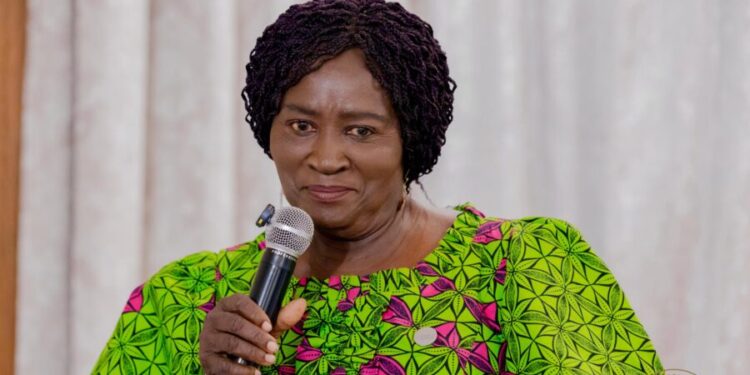Vice President Professor Naana Jane Opoku-Agyemang has called for stronger international collaboration and innovative financing to transform Ghana’s cocoa industry from a raw bean exporter into a full, value-driven cocoa economy that benefits farmers and creates decent jobs.
Speaking at the EU Sustainable Cocoa Initiative during the final day of the 2025 Global Gateway Forum in Brussels, the Vice President urged the European Union and development partners to invest more deeply in Ghana’s cocoa value chain.
She emphasized the need for structured, blended financing models that combine capital investment with affordable working capital, risk-sharing mechanisms, and technical support for small rural processors.
According to her, both the EU Sustainable Cocoa Initiative and the Global Gateway Framework are well positioned to drive this transformation.
She said “The recent cocoa price hikes, largely driven by climate impacts and supply shortfalls, underline the need for this joint action.”
She said Ghana remains open to partnerships which is not only improve cocoa production but also address disease and pest control while supporting the establishment of commercial plantations.
“We need collaborations that combine positive outcomes across the value chain,” she added.
The Vice President also expressed concern about global trade barriers that continue to disadvantage African cocoa producers. She explained that while tariffs on raw cocoa beans are often zero, duties on cocoa powder and chocolate products rise sharply — a structure she said limits Ghana’s ability to export processed cocoa goods.
“Addressing these tariff escalations is critical for fair trade,” she stressed.
Prof. Opoku-Agyemang highlighted that cocoa is central to Ghana’s broader transformation agenda, which is anchored in agro-industrialization and sustainable growth.
According to her, the Big Push Initiative is building infrastructure for agro-industrialization, while the Connect 24 pillar of the 24-hour economy ensures a seamless flow of goods, energy, and data.
She further pointed to Ghana’s Living Income Differential (LID) — introduced jointly with Côte d’Ivoire — as proof of the country’s commitment to ensuring fair compensation for farmers.
Prof. Opoku-Agyemang reaffirmed Ghana’s clear vision for the future emphasizing that the country must move beyond exporting raw beans to building a cocoa economy that empowers our farmers, creates jobs, develops industry, and upholds sustainability.
READ ALSO: CCMA launches 8-Year Development Plan to Spur Growth in Cape Coast
Source: Eric Sekyi/ATLFMNEWS

























